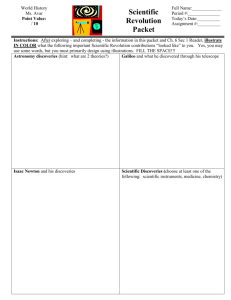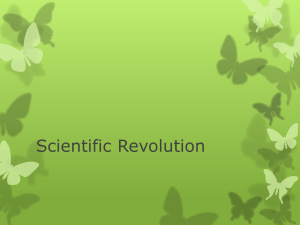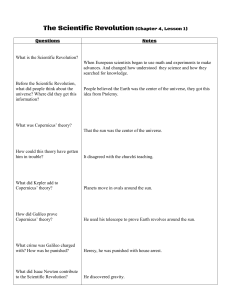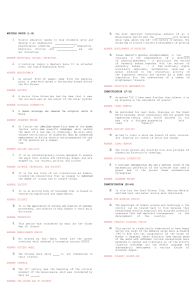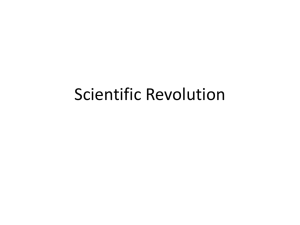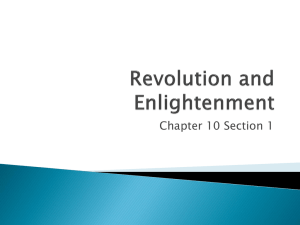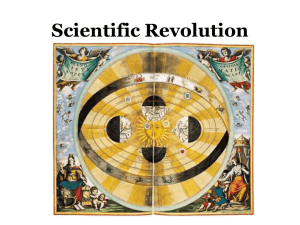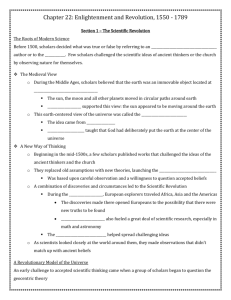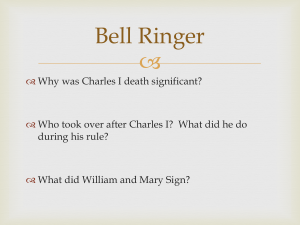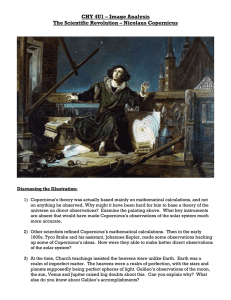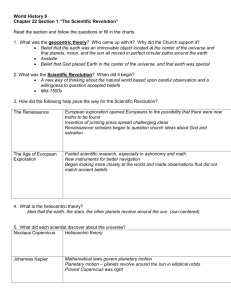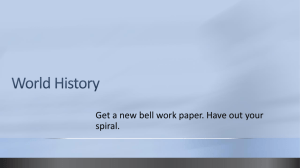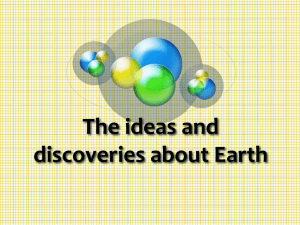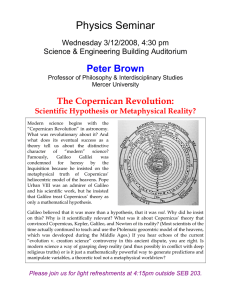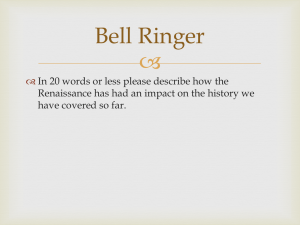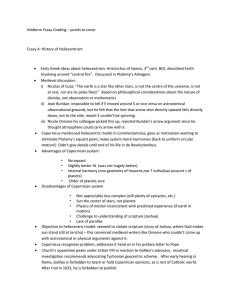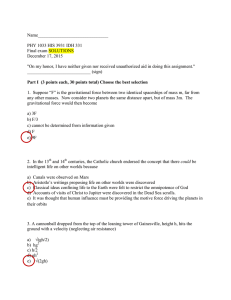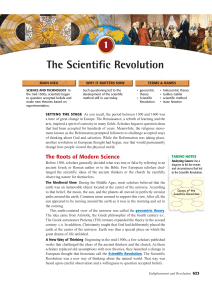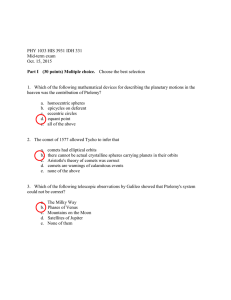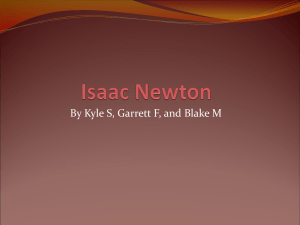The Scientific Revolution
advertisement
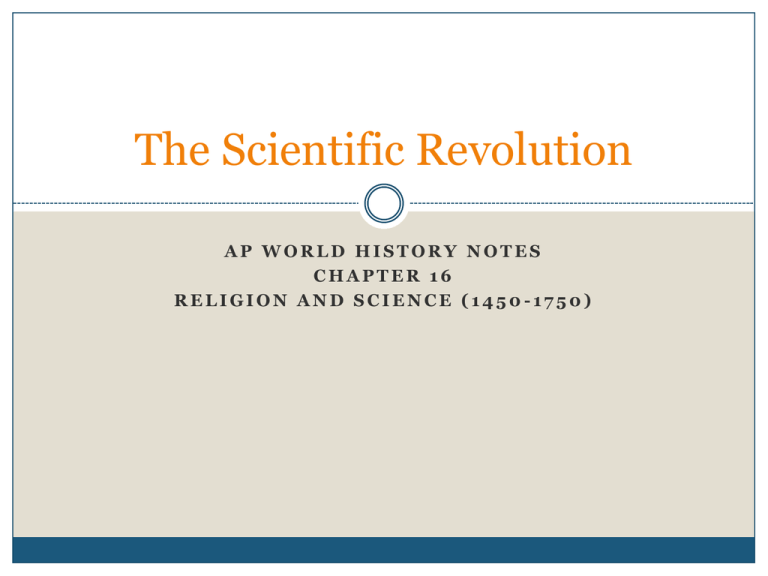
The Scientific Revolution AP WORLD HISTORY NOTES CHAPTER 16 RELIGION AND SCIENCE (1450-1750) The Scientific Revolution Intellectual and cultural transformation Began in Europe Mid-1500s to early 1700s Knowledge acquired through: careful observations, controlled experiments, the formulation of general laws, and mathematical expressions No more reliance on: the authority of the Bible, the Church, the speculations of ancient philosophers, or the received wisdom of cultural tradition The Question of Origins: Why Europe? 12th and 13th centuries = Europeans developed a legal system that gave a measure of independence to a variety of institutions Ex: the Church; towns and cities; workers’ guilds; professional organizations; universities Independence for universities = Cambridge University in England scholars had the freedom to pursue their studies without interference from the Church or political authorities Most of the major figures in the Scientific Revolution = trained in or affiliated with these universities Why Not the Islamic World? Focus in colleges/universities = Quranic studies and religious law Science was studied outside the formal system of higher education Religious scholars = viewed science and philosophy with suspicion To them = Quran holds all the wisdom Science might challenge the Quran Science and philosophy lead to uncertainty and confusion Why Not China? Chinese education = focused on preparing males for the civil service examinations Focused on classical Confucian texts Chinese authorities = did not allow independent institutions of learning where scholars could pursue their studies freely Nicolaus Copernicus Polish astronomer Started his career at University of Krakow in Poland in 1492 At the forefront of the Scientific Revolution Started at a time when few people dared to question old beliefs and superstitions Nicolaus Copernicus Believed the Earth was round & that it rotated around the sun Said the sun, not the Earth, was the center of the universe Challenged the idea that the Earth was unique and at the center of God’s attention Johannes Kepler German astronomer & mathematician Protestant Used math formulas to show that the planets revolved around the sun Planets moved in ellipses = ovals Planets don’t always travel at the same speed - move faster as they approach the sun Johannes Kepler Galileo Galilei Italian mathematician Improved the telescope to make it more powerful Observed: sunspots, mountains on the moon, Jupiter’s moons Created the pendulum clock 1636 = published ideas on physics, astronomy, etc. Book banned by the Catholic Church Galileo Galilei Faced heated opposition by the Catholic Church Placed under house arrest for 50 years Where he made most of his discoveries & achievements Trial of Galileo Sir Isaac Newton British scientist Below average student at Cambridge University Explored the most complicated mathematics of his day Studied Copernicus & Galileo Sir Isaac Newton 1665 = plague closed his university & he was forced to go home to his family Sitting in his garden one day, he saw an apple fall -helped him develop his theory of gravity 1687 = published theories about gravity Prevents objects from flying off the Earth; also holds the solar system together Sir Isaac Newton Formulated modern laws of motion and mechanics Developed calculus = system of math that calculates changing forces or quantities Proved that math can be used to explain the universe Francis Bacon English philosopher Truth found through investigation & evidence Helped develop scientific method 1. Observe 2. Make hypothesis 3. Test hypothesis 4. Conclusion Rene Descartes French philosopher & mathematician Truth gained through mathematics and logical deduction (reason) Invented analytic geometry Famous quote = “I think, therefore I am.” William Harvey English physician Concluded that blood circulates throughout the body, pumped by the heart and returning through the veins Before = people thought the liver digested food & processed it into blood Robert Hooke English scientist Discovered the cell Used new microscope -recognized cells in vegetable tissues Robert Boyle Irish chemist Established chemistry as a pure science Proved air wasn’t a basic element Defined what an element is = something that can’t be broken down into simpler parts Challenged alchemy = trying to turn lead into gold Joseph Priestley English chemist & clergyman Did experiments about the properties of air and discovered the existence of oxygen His studies on carbon dioxide led to his invention of carbonated drinks (like soda)
